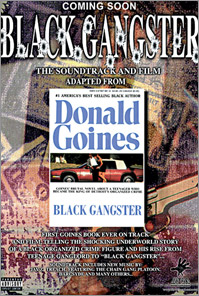 No one artist is guaranteed to be successful promoting his or her music through social networking sites. While there are methods and tricks of the trade to help increase your visibility and impact online, a site or app can’t do its magic if the person using it fails to do his or her part. Below are 5 basic traits that every artist needs to possess and work at maintaining in order use social networking as an effective way to promote upcoming shows and new music.
No one artist is guaranteed to be successful promoting his or her music through social networking sites. While there are methods and tricks of the trade to help increase your visibility and impact online, a site or app can’t do its magic if the person using it fails to do his or her part. Below are 5 basic traits that every artist needs to possess and work at maintaining in order use social networking as an effective way to promote upcoming shows and new music.
Organized
As we’ve already discussed, with all of the resources available to help promote your music online, the worst thing you can do is sign up for all of these sites and fail to maintain them with updated, relevant information. It’s better to have a presence on 2 or 3 sites that you will regularly maintain than 12 sites that are outdated. An easy way to turn off fans is by making them play a guessing game as to which of your profiles is more reliable.
Dedicated
No one said social networking is easy. However, with 800+ million people logged into one social media site or another almost daily, many assume promoting online is a no brainer. The Top 6 most followed people on Twitter are musicians. However, unless you’re mother monster, a teen heartthrob, or pop princess, garnering a solid following takes effort. If fans post to your Facebook wall or send you a message on Twitter, and you are not there to answer them in a timely fashion, they will lose interest.
Social
Social is the key word in social networking, so it’s safe to say it is one of the key traits one must have to be successful at it. Scheduling tweets and posts is useful, but you cannot simply talk AT your fans, you must talk WITH them. Social networking is a TWO-WAY street. You can’t expect to become a topic of people’s conversations without first getting involved in a few conversations of your own.
Creative
As an artist you most likely already possess an abundance of creativity. Turn your talents towards social media when finding ways to engage with fans. Maybe it’s through video blogging, behind the scenes photo shoots, contests, fan input, free giveaways, etc. Maybe it’s something like this. The most important thing is to know your audience, give them what they want, and find ways to keep them coming back for more.
Productive
You can’t be successful at promoting yourself online if you’re not busy creating things to promote! It’s a hard line to straddle, but you do need find a balance between spending time online and spending time doing things to then post about online. The best way to keep fans engaged is by giving them something different to come back to each time they visit your pages. Connecting your social media sites to your mobile phone is a great way to stay connected without staying glued to your computer 24/7.
Remember, even the overnight success stories don’t exactly happen overnight. Anything worth having takes time and commitment. If you possess these traits you’ve already won over half the battle.
Have you come across any other great tips for using social media to promote your music? Share them with us below!






Social Networks